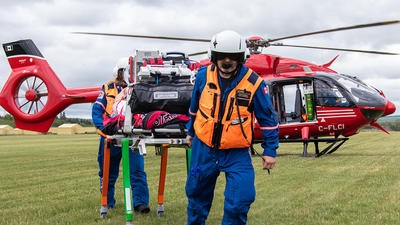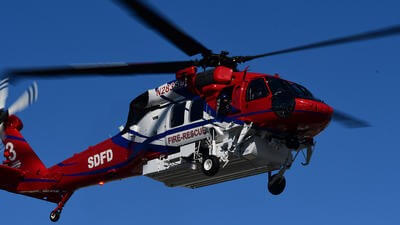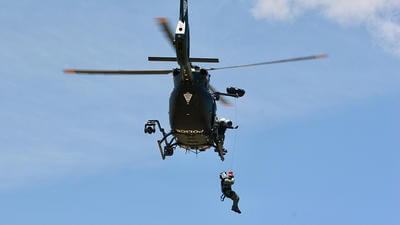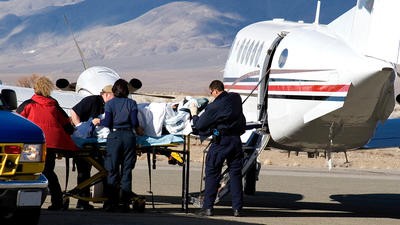Interview: Stephan Klose, AMTRAS
AirMed&Rescue spoke to Dr Stephan Klose, Medical Director at AMTRAS – Air Medical Transport Solutions – about his involvement with international medical transport
Can you tell me more about your career to date and what is your experience in the air medical field?
Since I first took my seat in an air ambulance jet in 2013 after becoming an emergency medicine physician, I have had the opportunity to work as a flight doctor on all types of aircraft (rotary- and fixed-wing). After being asked to join the former Air Alliance medical executive team in 2019, I was able to gain a lot of insight and background knowledge about the air ambulance business behind the scenes. Besides air ambulance flying, commercial airline repatriation is my great passion, and I’m close to having flown one million miles in commercial airliners. I still work part-time at a large hospital and a Level 1 trauma center in Germany that participates in a HEMS system, to keep my skills sharp.
What attracted you to aviation medicine in the first place – what makes it so unique compared to other fields of emergency medicine?
I always wanted to work in aviation and even tried to become a pilot before I started medical school. My first air ambulance flight was right after a night shift at my hospital, so I left my ER in Germany on a cold, rainy morning and ended up in a hot and humid Asian ICU a few hours later. Seeing how medicine works in different parts of the world and meeting people from all over the world still fascinates me every day. Above all, we can learn how people from developing countries, despite the lack of materials and little money, care for their patients with passion even under adverse conditions.
What do you enjoy most about your two roles at AMTRAS and Unicair?
At Air Alliance, now part of Unicair, I was able to learn and understand what it takes to meet the complex needs of patients, clients and assistance companies in international medical transport. With AMTRAS, we aim to provide this high-quality, client-centric service in a commercial medical escort setting. Our focus is on physician-escorted transports with commercial airlines, including medically complex cases. However, if the patient's condition deteriorates, we can easily organize air ambulance flights due to the short distances between AMTRAS and Unicair. Conversely, we can also quickly schedule a commercial medical escort if an air ambulance flight is not necessary or uneconomical. My pleasure is to combine the best of both worlds and always find the best and safest solution for the patient.
Air ambulances tend to get a lot of publicity, but commercial medical escorts don’t – why do you think this is?
Air ambulance is more visible to the public with its special jets and adventurous destinations that no commercial airline can fly to. However, the greatest success for commercial repatriation is when you provide the highest level of professional care possible and no one else in the area notices. It's important to emphasize that you can provide excellent specialist care and medical treatment on a commercial aircraft, including ECG monitoring, continuous medication administration, oxygen delivery and more. Even a stretcher on a commercial airliner is not always the best solution for a patient. Many transports can be performed much better and more comfortably in business class seats by experienced personnel.
For commercial airlines, it is important that their operations remain undisturbed, their flight schedule is maintained, and their passengers are satisfied. Therefore, we do not emphasize flashy attire, but instead good preparation and professional appearance.
Commercial medical escorts (CMEs) play an essential role in the repatriation process. How has it changed in the last 12 months?
Of course, preparations for each mission took longer to obtain permits, conduct PCR tests, or find suitable flight routes. Some destinations, like China, were more or less unreachable during the pandemic. For others, like Thailand in 2021, we were forced to find creative solutions (stopover in Singapore at the transit hotel and then pick up the patient in Bangkok airside). But we were also able to help clients on missions that would have otherwise needed an air ambulance, because we sought contact with embassies early on and were able to organize some important visas (eg, for the US). We were one of the few providers able to operate some flights from Europe to the US without lead time during the border closures.
Have the types of patients you are transporting onboard commercial aircraft changed?
We have seen some cases of Covid-19 in commercial repatriations after patients had partially recovered and were no longer considered contagious. Otherwise, we find more or less the same type of injuries and illnesses, and especially in recent months we have seen an increase in typical holiday-related medical problems. Medical tourism is also a growing area, which sometimes require specialized medical escorts for highly complex cases that need to be taken far from home for specialized treatment. Last but not least, patients who, due to their need for care, wish to move permanently to a retirement home near their family on another continent or spend the last part of their lives close to home.

Are airlines more or less willing to accept critical patients than before the pandemic?
As before, this always depends on the airline’s internal policies. Some airlines conduct a very thorough examination with their own medical team. Others give clearance when it is ensured that qualified medical escort staff with the appropriate equipment will take care of the patient. Thus, in almost all cases, we can find a suitable flight route with a top-rated airline that will provide fast and comfortable transportation.
Can you tell us about a case you undertook recently that was particularly challenging, and how you overcame those obstacles?
A patient was stranded in the Caribbean with a very painful injury, and the assistance company’s own flight nurse could not get the lady back to Europe on her business class ticket. The assistance company turned to AMTRAS to arrange a doctor escort and probably stretcher transport. We held a conference call with the local nurse and planned to send our doctor to the Caribbean island with complete critical care equipment and medications. Just two days later, the lady was transported in her originally booked business class seat with the nurse and our physician escort back to Europe. She was fully monitored and treated with strong pain medication and supplemental oxygen so that she could adjust to a sitting or lying position in business class as needed. It was a very safe (and the most comfortable) transport for the patient, and the insurance company was able to save tens of thousands of dollars on the stretcher transport that was ultimately not needed.
AMTRAS
AMTRAS was established in early 2021 during the Covid-19 pandemic to provide quality medical care on commercial airlines – a business that had fallen to almost zero at that time. A team of eleven highly qualified and motivated physicians, nurses and paramedics stand ready to care for patients around the globe and ensure safe and smooth repatriation, with a focus on physician-assisted commercial repatriation and support for medically complex cases and difficult routes. In addition to the typical repatriation after sudden injury or illness abroad, AMTRAS supports patients in worldwide medical air transport, eg, for health tourism or end-of-life care close to home.
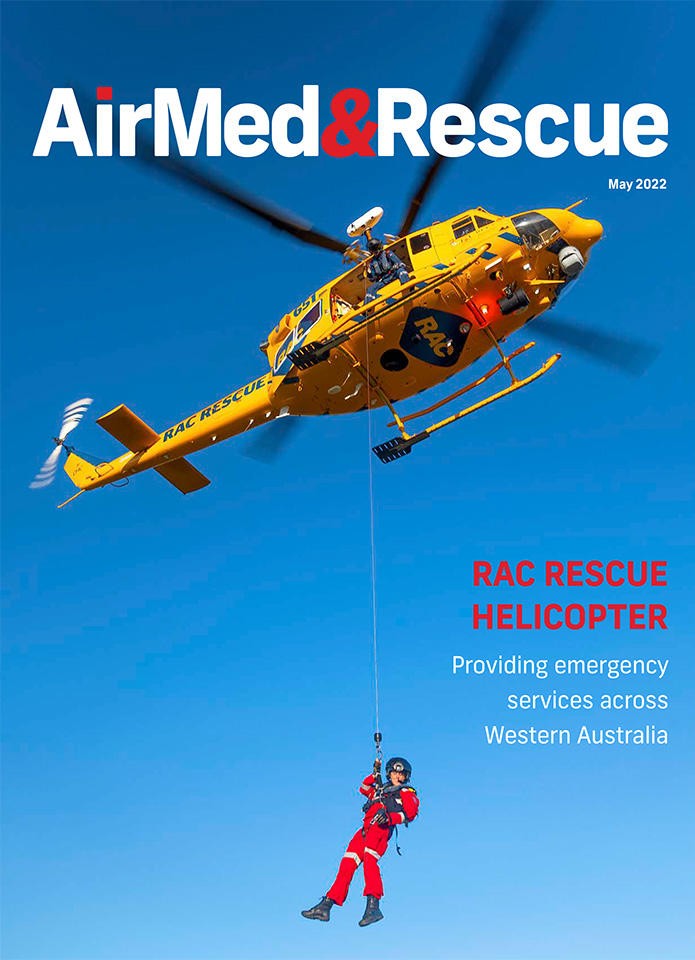
May 2022
Issue
In this issue:
Dynamic hoisting; wireless communication solutions enhancing crew coordination; we say au revoir to the RCAF CC-115; introducing pre-hospital ECMO - nationwide coverage in the Netherlands; CAMTS' Executive Director Eileen Frazer looks at what critical care means; HEMS pilot Mike Biasatti explains how hard work and dedication pay off; and Dr Julian Wijesuriya on Airway Management interactive online learning course.
Editorial Team
The AirMed&Rescue Editorial Team works on the website to ensure timely and relevant news is online every day. With extensive experience and in-depth knowledge of the air medical and air rescue industries, the team is ready to respond to breaking industry news and investigate topics of interest to our readers.
